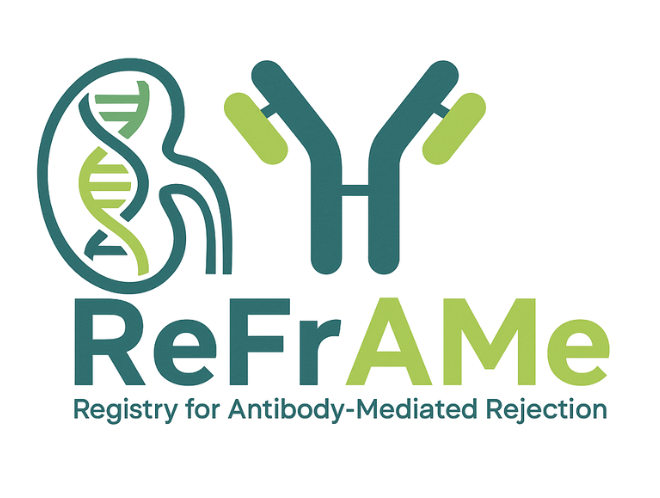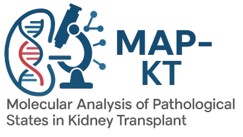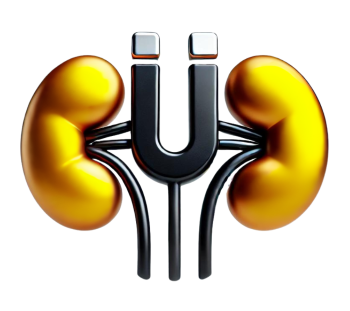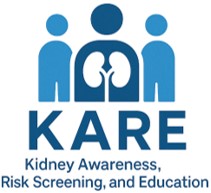Kidney disease and Transplant Epidemiology (KiTE)
Launched in 2023, the Kidney Disease and Transplant Epidemiology (KiTE) collaborative at VCU Nephrology brings together experts in nephrology, artificial intelligence, data analytics, genetics, immunology, and related fields to accelerate discovery and improve outcomes for patients with kidney disease and those undergoing transplantation. With a focus on machine learning and big data, KiTE is developing tools to mine electronic health records for early diagnosis, automate transplant decision-making, individualize treatments, and reduce the risk of rejection and infection. By advancing research in early disease detection, decision analytics, pre-transplant health, and personalized immunosuppression, KiTE aims to transform nephrology care and reduce the burden of kidney disease.
The Kidney disease and Transplant Epidemiology (KiTE) Research Consortium is a multidisciplinary research collaborative based at Virginia Commonwealth University. Our mission is to advance kidney health through innovation, collaboration, and implementation.
KiTE’s research spans three core areas:
- Precision Nephrology – We combine advanced analytics with community-engaged approaches to transform how kidney disease is identified and managed. By leveraging machine learning and artificial intelligence, we develop predictive algorithms, electronic phenotypes, and clinical decision tools embedded within electronic health records (EHRs) to support early diagnosis and personalized treatment. Simultaneously, through population health strategies and community-based screening initiatives like KARE (formerly DECK) and Kidney HEALTH, we identify individuals at risk and connect them to timely care, ensuring everyone has a fair opportunity to achieve their best possible kidney health.
- Transplant Nephrology – Our studies focus on improving transplant outcomes through innovations in immunologic risk prediction (e.g., MMDx, dd-cfDNA, cPRA variability), optimizing referrals, and testing point-of-care technologies for post-transplant care. We lead national consortia including the MAP-KT (MMDx) and ReFrAMe (ABMR) Project and participate in multi-site trials and registry studies.
- General Nephrology – Our studies focus on improving the diagnosis, management, and outcomes of chronic kidney disease (CKD) and its associated conditions across diverse populations. We utilize electronic health record (EHR) data, real-world evidence, and population health tools to examine disease progression, risk prediction, and treatment effectiveness in routine clinical care. Our research spans hypertension, diabetes-related kidney disease, and metabolic contributors to CKD, including emerging investigations into cardio-renal-metabolic syndromes. Through multicenter registries like MAGNET and CureGN, and embedded interventional studies such as PATHWAYs, we explore how medical and social complexity intersect in patient care. The goal is to inform clinical guidelines and advance timely, patient-centered approaches that reflect the realities of everyday nephrology practice.
Director's Message
Gaurav Gupta, MD
Studies
Learn more about our active KiTE studies
Observational Studies
- An Observational, Non-Interventional, Multi-Center, Multi-National Study of Patients With Atypical Hemolytic-Uremic Syndrome (aHUS Registry) NCT01522183
- Immune Registry for BK (Polyomavirus Hominis 1) in Kidney Transplant Recipients NCT06538961
- APOL1 Long-term Kidney Transplantation Outcomes Network (APOLLO) NCT03615235
- The Impact of Diabetes on Patients with Glomerular Disease: CureGN-Diabetes
- Multi-center, long-term observational study of patients with Nephrotic Syndrome and other glomerular diseases: CureGN
Interventional Drug Trials
- APPELHUS: A Multicenter, Single-arm, Open Label Trial to Evaluate Efficacy and Safety of Oral, Twice Daily LNP023 in Adult aHUS Patients Who Are Naive to Complement Inhibitor Therapy NCT04889430
- IMAGINATION: A Phase III, Multicenter, Randomized, Double-Blind, Placebo-Controlled Study to Evaluate the Efficacy and Safety of RO7434656, an Antisense Inhibitor of Complement Factor B, in Patients With Primary IgA Nephropathy at High Risk of Progression NCT05797610
- shAMRock: A Phase 2, Multicenter, Randomized, Double-Blinded, Placebo-Controlled study, to Evaluate the Safety, Tolerability, and Efficacy of Efgartigimod PH20 SC Administered by a Prefilled Syringe in Kidney Transplant Recipients with Antibody-Mediated Rejection NCT06503731
- TRANSCEND: A Double-Blind, Placebo-Controlled, Multicenter, Randomized Phase 3 Trial Evaluating the Efficacy and Safety of Felzartamab in Kidney Transplant Recipients With Late Antibody-Mediated Rejection (AMR) NCT06685757
- AWAKE: A Phase 3, Double-blind, Randomized, Placebo-controlled, Multicenter Study to Evaluate the Efficacy and Safety of Ravulizumab Administered Intravenously in Adult Participants at High Risk of Delayed Graft Function After Kidney Transplantation NCT06830798
- AMPLITUDE: A Phase 2/3 Adaptive, Double-blind, Placebo-Controlled Study to Evaluate the Efficacy and Safety of VX-147 in Adult and Pediatric Subjects With APOL1-mediated Proteinuric Kidney Disease NCT05312879
HCV & Kidney Transplantation
- PREVENT-HCV: Prophylaxis With Direct-acting Antivirals for Kidney Transplantation From Hepatitis C Virus-Infected Donors to Uninfected Recipients: a Randomized Controlled Trial NCT05653232
Biomarker, Diagnostic, and Screening Studies
- INTERCOMEX: Trifecta-Kidney cfDNA-MMDx Study: Comparing the DD-cfDNA Test to MMDx Microarray Test, Central HLA Antibody Test, and Histology NCT04239703
- CARSK: Canadian-Australasian Randomised Trial of Screening Kidney Transplant Candidates for Coronary Artery Disease NCT03674307
Supported by the Gupta-Levy Fund, this ongoing registry collects blood and urine biospecimens from all kidney transplant recipients at VCU Health. By linking these samples with clinical outcomes, the registry aims to uncover why transplant outcomes vary across individuals. The long-term goal is to discover non-invasive biomarkers that can help tailor immunosuppressive therapies and improve patient outcomes through precision transplant care.
 The ReFrAMe Project is a national, multicenter research initiative led by VCU to better understand antibody-mediated rejection (ABMR), a leading cause of late kidney transplant failure. By integrating clinical, histologic, immunologic, and molecular data, the registry aims to improve early diagnosis, personalize treatment, and ultimately enhance long-term transplant outcomes.
The ReFrAMe Project is a national, multicenter research initiative led by VCU to better understand antibody-mediated rejection (ABMR), a leading cause of late kidney transplant failure. By integrating clinical, histologic, immunologic, and molecular data, the registry aims to improve early diagnosis, personalize treatment, and ultimately enhance long-term transplant outcomes.
 A multi-center study evaluating the clinical utility of gene expression profiling in kidney transplant biopsies. By comparing MMDx results with traditional histology and donor-derived cell-free DNA (dd-cfDNA), this study aims to enhance diagnostic accuracy for rejection and improve treatment strategies in kidney transplantation.
A multi-center study evaluating the clinical utility of gene expression profiling in kidney transplant biopsies. By comparing MMDx results with traditional histology and donor-derived cell-free DNA (dd-cfDNA), this study aims to enhance diagnostic accuracy for rejection and improve treatment strategies in kidney transplantation.
Interested in joining the MMDx Research Consortium? Submit your contact information here to learn more about collaboration opportunities.
 The Mid-Atlantic Glomerulonephritis Network (MAGNET) is a regional observational registry focused on glomerular diseases and vasculitis. MAGNET collects clinical and laboratory data to support long-term tracking of patients and facilitate future research into disease progression, treatment response, and outcomes. The registry aims to build a foundation for real-world evidence generation and quality improvement in glomerular disease care.
The Mid-Atlantic Glomerulonephritis Network (MAGNET) is a regional observational registry focused on glomerular diseases and vasculitis. MAGNET collects clinical and laboratory data to support long-term tracking of patients and facilitate future research into disease progression, treatment response, and outcomes. The registry aims to build a foundation for real-world evidence generation and quality improvement in glomerular disease care.
PATHWAY GN (Patient-Aligned Transitions for Health in GN)
The PATHWAYs Project is an embedded interventional study within MAGNET that targets three critical care transitions for patients with glomerular disease:
- Pediatric to adult nephrology care
- Referral and education for kidney transplantation
- Planning and education for dialysis initiation
This study is funded by the American Nephrology Nurses Association and Satellite Healthcare to support structured, protocolized interventions that improve patient outcomes across the care continuum. By integrating standardized assessments, education tools, and care coordination into routine nephrology practice, PATHWAYs seeks to improve patient engagement, preparedness, and clinical outcomes during high-risk care transitions.
 The KARE study is a community-based screening initiative aimed at identifying chronic kidney disease (CKD) risk factors, including blood pressure, waist circumference, body mass index (BMI), hemoglobin A1C, estimated glomerular filtration rate (eGFR), and urine albumin/creatinine ratio (UACR), to calculate a Kidney Health Score (KHS) and assess unmet social needs. Supported by a community advisory board and funded through the 2025 Thriving Communities Research Pilot Grant, the project promotes early detection, referral to nephrology, and connection to social support services in Richmond and surrounding communities. This project builds on the original pilot funded by the national kidney foundation – Designing Equitable Care for Kidneys.
The KARE study is a community-based screening initiative aimed at identifying chronic kidney disease (CKD) risk factors, including blood pressure, waist circumference, body mass index (BMI), hemoglobin A1C, estimated glomerular filtration rate (eGFR), and urine albumin/creatinine ratio (UACR), to calculate a Kidney Health Score (KHS) and assess unmet social needs. Supported by a community advisory board and funded through the 2025 Thriving Communities Research Pilot Grant, the project promotes early detection, referral to nephrology, and connection to social support services in Richmond and surrounding communities. This project builds on the original pilot funded by the national kidney foundation – Designing Equitable Care for Kidneys.
GRAFT-HOME, supported by the Wright Center for Clinical and Translational Research, evaluates the use of daily point-of-care (POC) home testing with the Nova Max Creatinine/eGFR device to improve the management of delayed graft function (DGF) in kidney transplant recipients. The study also incorporates machine learning algorithms to guide clinical decision-making around dialysis and biopsy. By enabling real-time, at-home kidney function monitoring, GRAFT-HOME aims to enhance patient-centered care.
The Kidney HEALTH project, sponsored by the VCU Division of Nephrology, leverages electronic health record (EHR) data to identify individuals at risk for chronic kidney disease (CKD). Using electronic phenotyping, the project integrates clinical indicators to support early detection, population health management, and targeted intervention strategies across diverse patient populations.
Funded by the VCU Department of Internal Medicine’s 8th Annual Pilot Research Award, this study uses retrospective data and predictive modeling integrated into the EHR to improve the timeliness and equity of kidney transplant referrals. The project aims to streamline referral workflows and ensure earlier identification of transplant-eligible patients at high risk of kidney failure.
This study evaluates how differences in calculated panel reactive antibody (cPRA) scores across transplant centers affect waitlist access and outcomes for multi-listed kidney transplant candidates. Using national data, the project highlights variability in cPRA determination and its association with patient demographics and sensitization levels, emphasizing the need for greater standardization to ensure equitable transplant access.
This study evaluates the integration of the Six-Minute Walk Test (6MWT) as a functional screening tool in the pre-transplant evaluation process for kidney transplant candidates. Patients are stratified based on walking distance into low, moderate, or high-risk categories and routed to appropriate interventions, ranging from home physical therapy to cardiopulmonary exercise testing (CPET) and structured renal rehabilitation. The goal is to improve pre-transplant risk assessment and optimize patient readiness for kidney transplantation through early identification of frailty and tailored rehabilitation pathways.
This study, funded by the VCU Department of Internal Medicine AI Pilot Grant, applies artificial intelligence to echocardiographic data to detect subtle patterns of cirrhotic cardiomyopathy that may predict the onset of hepatorenal syndrome (HRS). By leveraging advanced imaging analysis and machine learning algorithms, the project aims to improve early identification of patients at risk for HRS, supporting timely interventions and better outcomes in individuals with liver disease.
This pilot study, funded by the Stravitz-Sanyal Institute for Liver Disease and Metabolic Health, explores the role of the renin-aldosterone system (RAS) in driving hypertension among individuals with metabolic dysfunction-associated steatohepatitis (MASH). By using cross-sectional assessments, including heart rate variability (HRV) and biochemical markers, the study aims to uncover mechanistic pathways linking metabolic liver disease to cardiovascular dysfunction, laying the groundwork for targeted interventions in this high-risk population.
Publications
Learn more about our scholarly activity
- Ariyamuthu VK, Cheng XS, Hippen B, et al. The Final Rule in a Bind: What We Are Learning From Suboptimal Simultaneous Heart-Kidney Outcomes and Potential Solutions to the Problem. Transplantation. 2025;109(6):e317-e325. doi:10.1097/TP.0000000000005251
- Christensen J, Thompson R, Paulus A, et al. Reduction in Belatacept Dosing Frequency to Every 2 Months for Kidney Transplant Patients at High Risk of Infections. Clin Transplant. 2025;39(6):e70212. doi:10.1111/ctr.70212
- Paulus AB, McGraw A, Elswick RK, Seelam SR, Shaw M, Kidd JM. Community-Based Screening for Unmet Social Needs and Kidney Disease Risk Factors: Findings from the DECK Pilot Observational Study. Nephrol Nurs J. 2025;52(3):239-254.
- Imai D, Rokop ZP, Yokoyama M, et al. Renal Function in Sequential Living Kidney-Then-Liver Donors Undergoing Right Lobe Donation: A Two-Center Case Study. Clin Transplant. 2025;39(5):e70168. doi:10.1111/ctr.70168
- Blazius B, Troost JP, Kopp JB, et al. Clinical Decision-Making About Immunosuppressive Treatment in Focal Segmental Glomerulosclerosis. Kidney Med. 2025;7(4):100975. Published 2025 Feb 10. doi:10.1016/j.xkme.2025.100975
- Yakubu I, Moinuddin I, Brown A, Sterling S, Sinhmar P, Kumar D. Costimulation blockade: the next generation. Curr Opin Organ Transplant. 2025;30(2):96-102. doi:10.1097/MOT.0000000000001206
- Paulus AB, Kumar D, Pontinha VM. The case for value-based care in kidney transplantation: insights into geography, growth, and financial models. Curr Opin Organ Transplant. 2025;30(2):87-95. doi:10.1097/MOT.0000000000001204
- Kumar D, Yakubu I, Gupta G. Belatacept Versus Tacrolimus for Kidney Transplant Recipients of Deceased Donors With Acute Kidney Injury: Glass Half-Full?. Transplantation. 2025;109(4):582-583. doi:10.1097/TP.0000000000005248
- Parajuli S, Niemann M, Dale BL, et al. Predicted Indirectly Recognizable T-cell Epitope (PIRCHE) Load Correlates With Rejection Events After Simultaneous Pancreas-Kidney Transplantation. Transplant Direct. 2025;11(3):e1764. Published 2025 Feb 7. doi:10.1097/TXD.0000000000001764
- Gupta G, Athreya A, Kataria A. Biomarkers in Kidney Transplantation: A Rapidly Evolving Landscape. Transplantation. 2025;109(3):418-427. doi:10.1097/TP.0000000000005122
- Niemann M, Matern BM, Gupta G, et al. Advancing risk stratification in kidney transplantation: integrating HLA-derived T-cell epitope and B-cell epitope matching algorithms for enhanced predictive accuracy of HLA compatibility. Front Immunol. 2025;16:1548934. Published 2025 Feb 11. doi:10.3389/fimmu.2025.1548934
- Kumar D, Raju N, Tanriover B, et al. Tissue-based Gene Expression Diagnosis of Mild and Moderate T-cell-mediated Rejection to Guide Therapy in Kidney Transplants. Transplantation. Published online December 23, 2024. doi:10.1097/TP.0000000000005296
- Paulus AB, Alavala V, Kidd JM. The Kidney Health Score: A Practical Guide to Early Detection of Kidney Disease Risk for Optimal Kidney Health. Nephrol Nurs J. 2024;51(6):513-523.
- Kim Y, Kim J, Joh RI, et al. Disrupted rest-activity circadian rhythms are associated with all-cause mortality in patients with chronic kidney diseases. Chronobiol Int. 2024;41(11):1399-1410. doi:10.1080/07420528.2024.2414045
- Kirkman DL, Kidd JM, Carbone S, et al. Frailty and Prehabilitation: Navigating the Road to a Successful Transplant. J Am Soc Nephrol. 2024;35(11):1607-1609. doi:10.1681/ASN.0000000000000485
- Wood RE, Paulus AB, Elswick RKM. Exploring Loneliness and Burnout in Nephrology Nurses: A Mixed-Methods Analysis. Nephrol Nurs J. 2024;51(5):433-442.
- Cahill ML, Paulus AB. The Impact of Interdisciplinary Care Teams in Value-Based Kidney Care: Insights from Case Study Reports. Nephrol Nurs J. 2024;51(5):413-418.
- Kataria A, Athreya A, Gupta G. Biomarkers in Kidney Transplantation. Adv Kidney Dis Health. 2024;31(5):427-435. doi:10.1053/j.akdh.2024.06.001
- Kidd JM, Patrick K, Sriperumbuduri S. Uremic stomatitis. Kidney Int. 2024;106(2):319. doi:10.1016/j.kint.2024.03.023
- Aubert O, Ursule-Dufait C, Brousse R, et al. Cell-free DNA for the detection of kidney allograft rejection. Nat Med. 2024;30(8):2320-2327. doi:10.1038/s41591-024-03087-3
- Singh N, Anand PM, Gupta G, et al. Should Transplant Nephrology Pursue Recognition from the Accreditation Council for Graduate Medical Education (ACGME)?. Clin J Am Soc Nephrol. 2024;19(8):1051-1060. doi:10.2215/CJN.0000000000000441
Our Team
KiTE research consortium
VCU Team members:

Akshay Athreya, MD
VCU Division of Nephrology
Email: akshay.athreya@vcuhealth.org

Ambreen Azhar, MD
VCU Division of Nephrology
Email: ambreen.azhar@vcuhealth.org

Dipankar Bandyopadhyay, PhD
Director of Data Analytics
VCU Department of Biostatistics
Email: dbandyop@vcu.edu

Johanna Christensen, FNP
VCU Division of Nephrology
Email: johanna.christensen@vcuhealth.org

Andinet Gizaw, MD
VCU Division of Nephrology
Email: andinet.gizaw@vcuhealth.org

Gaurav Gupta, MD
Professor of Medicine and Surgery
Medical Director of Kidney/Pancreas Transplantation
VCU Division of Nephrology
Email: gaurav.gupta@vcuhealth.org

Layla Kamal, MD
Program Director, Transplant Nephrology Fellowship
VCU Division of Nephrology
Email: layla.kamal@vcuhealth.org

Jason M. Kidd, MD
VCU Division of Nephrology
Email: jason.kidd@vcuhealth.org

Danielle Kirkman, PhD
VCU Department of Kinesiology and Health Sciences
Email: dlkirkman@vcu.edu

Dhiren Kumar, MD
VCU Division of Nephrology
Email: dhiren.kumar@vcuhealth.org

Irfan Moinuddin, MD, FASN
Program Director, Nephrology Fellowship
VCU Division of Nephrology
Email: irfan.moinuddin@vcuhealth.org

Selvaraj Muthusamy, MBBS, PhD
Assistant Professor of Pathology
VCU Department of Pathology
Email: selvaraj.muthusamy@vcuhealth.org

Amber B. Paulus, PhD, RN
Associate Chief Nephrology Research
VCU Division of Nephrology
Email: amber.paulus@vcuhealth.org

Mary Carmelle Philogene, PhD, F(ACHI)
Director of the Histocompatibility and Immunogenetics Laboratory
Associate Professor - VCU Department of Surgery
Email: mary.philogene@vcuhealth.org

Vasco Miguel Pontinha, PhD
VCU Department of Pharmacotherapy & Outcomes Science
Email: vieiradasilvv@vcu.edu

Stephen Seelam, MPH, MS
Biostatistician
VCU Division of Nephrology
Email: stephen.seelam@vcuhealth.org

Idris Yakubu, PharmD, BCTXP, FAST
Transplant Pharmacy
Email: idris.yakubu@vcuhealth.org
Gelila Abebe
Clinical Research Coordinator
VCU Division of Nephrology
Email: gelila.abebe@vcuhealth.org
Shawn W. Fenner, BSN, RN
Lead, Clinical Research Coordinator
VCU Division of Nephrology
Email: shawn.fenner@vcuhealth.org
Ashley Lukwago
Clinical Research Coordinator
VCU Division of Nephrology
Email: ashley.lukwago@vcuhealth.org
Pawan Sinhmar
Research Associate
VCU Division of Nephrology
Email: pawan.sinhmar@vcuhealth.org
Meron Zeleke, MPH
Clinical Research Coordinator
VCU Division of Nephrology
Email: meron.zeleke@vcuhealth.org
- Jordan Cofield
Undergraduate Student
Virginia Commonwealth University
Project: VCU Transplant Registry
- Rebecca Eshtiaghpour
Medical Student
Virginia Commonwealth University
Project: KARE Study
-
Aiswarya Jacob
Undergraduate Student
Virginia Commonwealth University
Project: Transplant Referral Study -
EIshaan Khatri
Undergraduate Student
Virginia Commonwealth University
Project: VCU Transplant Registry -
Kabir Munjwani
Undergraduate Student
Virginia Commonwealth University
Project: MAGNET/PATHWAYS GN
- Rushi Patel
Undergraduate Student
Virginia Commonwealth University
Project: VCU Transplant Registry
-
Dipta Pokharel
Undergraduate Student
Virginia Commonwealth University
Project: VCU Transplant Registry - Maryam Shaw
Undergraduate Student, UROP Fellowship
Virginia Commonwealth University
Project: Leveraging Publicly Available Data to Identify At-Risk Populations for Community-Based Kidney Disease Screening
- Bekir Tanriover, MD, MPH, MBA, FAST
Chief, Division of Nephrology
The University of Arizona College of Medicine
Partner with Us
Interested in advancing kidney research together?
We welcome collaboration through academic partnerships, industry-sponsored trials, or consortium participation. If you're interested in:
- Academic collaborations on innovative research pursuits
- Industry-sponsored clinical trials
- Joining the KiTE Research Consortium
- Joining a transplant research registry – MMDx (MAP-KT), ABMR (ReFrAMe)
- Submitting a proposal to use data from one of our curated registries
Please reach out to Dr. Amber Paulus, Associate Chief of Nephrology Research, to explore how we can work together.
Let’s accelerate discovery and impact in kidney and transplant research, together.
Give
Learn more about supporting our work
To support our work in kidney and transplant research, we welcome gifts of all sizes. There are two ways you can contribute to the KiTE Research Consortium at VCU:
Current-Use Giving
The GiFT (Gupta Innovation Fund for Transplantation and Nephrology Research) Fund supports a wide range of research and innovation across KiTE and the Division of Nephrology. This fund allows for immediate use of donations to accelerate active projects, pilot studies, and trainee development. Give to the GiFT Fund
Endowed Giving
The Gupta-Levy Transplant Research Endowed Fund supports long-term investment in transplant research. Gifts to this fund help sustain research excellence over time by providing enduring resources for innovation and discovery. Give to the Gupta-Levy Endowed Fund
By Mail
When making a gift by check, please:
- Make it payable to MCV Foundation
- Specify either GiFT Fund – KiTE or Gupta-Levy Endowed Fund – KiTE in the memo line
- Mail your gift to:
Virginia Commonwealth University
Gifts and Records Management
Box 843042
Richmond, VA 23284-3042
Questions or Interested in Larger Gifts?
If you're considering a larger donation, endowment, or other impactful giving opportunity, please contact:
- Dr. Gaurav Gupta, Chief, Division of Nephrology – gaurav.gupta@vcuhealth.org
- Nate Bick, Executive Director of Development – ngbick@vcu.edu
Thank you for supporting kidney research and innovation at VCU.
Contact
KiTE Research Consortium
Gaurav Gupta, MD
KiTE Research Consortium (medical lead at VCU)
VCU Division of Nephrology
Email: gaurav.gupta@vcuhealth.org
